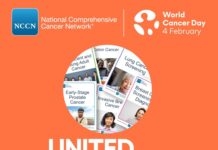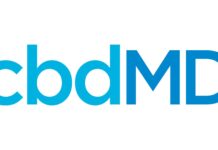Investments in Local Community Experts Enhance Patient Care & Increases Job Opportunities
BRONX, N.Y., Aug. 15, 2023 /PRNewswire-HISPANIC PR WIRE/ — The delivery of healthcare services, while important, represents only 20% of the factors that contribute to a person’s health status. In contrast, social determinants of health (SDOH)—conditions that people are born into, work and live in that impact health outcomes (e.g. housing, transportation, education)—are widely recognized as having the most significant influence on a person’s health. Despite their importance, SDOH are understudied and resources to address them within the healthcare system are rare. But that’s starting to change.

The Community Health Worker Institute (CHWI) at Montefiore, launched in 2021, is establishing a model to address SDOH within an academic health system. The CHWI embeds local experts, known as community health workers (CHWs), into clinical teams to fill the gaps between medical care and social services in the Bronx.
“By having a community health worker as part of the clinical team, they can effectively get to the root of health problems and identify real-world solutions that can significantly improve the health and well-being of our patients,” said Kevin Fiori, M.D., M.P.H., M.S., director of CHWI and a pediatrician and researcher at Montefiore Health System and Albert Einstein College of Medicine.
Building the Workforce
Reflecting the background, language, and lived experience of the Bronx community they serve, the CHWs at Montefiore are frontline public health workers who serve as trusted members of the community. In partnership with 1199, the largest healthcare union in the nation and Hostos Community College, one of only two New York State Department of Labor accrediting institutes for CHW education, CHWs receive rigorous training and ongoing education, so they are well equipped to identify patients’ social needs and work with them to secure the necessary services. These partnerships also create a pipeline of employment opportunities.
“To walk in a person’s shoes and empathize about experiences is the secret sauce that is sometimes missing in U.S. healthcare – it is a genuineness that can’t be fabricated, and is something we need more of,” said Dr. Fiori, who is also associate professor of family and social medicine and of pediatrics at Einstein. “Our CHWs enable people to open up so we can learn about challenges impeding their family’s health.”
For example, a CHW may learn there is mold in a patient’s home that is exacerbating their child’s asthma. The CHW will alert the medical team to the underlying mold problem, but also helps the patient address their unsafe housing conditions.
The CHWs are placed in different locations throughout Montefiore based on the results of SDOH screenings that take place throughout the system. To date, Montefiore has screened more than 190,789 individuals and found that approximately 20% have at least one social need. Montefiore has identified specific zip codes and services where there is greater need for CHWs, including primary care, pediatric and family medicine locations, OB-GYN clinics and the pediatric hematology/oncology unit at the Children’s Hospital at Montefiore. The initial goal is to serve approximately 9,000 patients and families annually.
Ensuring Evidence-Based Care
A unique aspect of the CHWI is its Community Health Systems Lab, which conducts research on SDOH and the impact of CHWs. The lab has created new ways to gather and analyze data on SDOH and health status and developed novel workflows so that the impact of CHWs on the lives of Bronx residents can be evaluated. The goal is to use data to inform best practices, identify the most useful resources for patients, and determine the best interventions to ensure the CHWs are most effectively deployed. In addition, the lab will track medical costs to evaluate savings that can be attributed to CHWs, making the case for payers like commercial insurance, Medicare and Medicaid, to invest more in this model of care.
“As a former CHW and health educator who worked in the Bronx for 13 years, I am acutely aware of the challenges our community faces,” said Renee Whiskey-LaLanne, M.P.H., MCHES, AE-C, associate director, CHWI, and director, Community Partnerships in the department of family and social medicine at Montefiore and Einstein. “What is not always clear is the best step to support our patients and families. Because our CHWs collaborate across clinical departments, we can work effectively across the health system to observe trends in how families, not just individuals, are navigating social services. Looking at this fuller picture is unbelievably powerful. Our findings will not just help our Bronx population but also has the potential to inform new standards of care for communities who have historically been socially and economically marginalized.”
About Montefiore Health System
Montefiore Health System is one of New York’s premier academic health systems and is a recognized leader in providing exceptional quality and personalized, accountable care to approximately three million people in communities across the Bronx, Westchester and the Hudson Valley. It is comprised of 10 hospitals, including the Children’s Hospital at Montefiore, Burke Rehabilitation Hospital and more than 200 outpatient ambulatory care sites. The advanced clinical and translational research at its medical school, Albert Einstein College of Medicine, directly informs patient care and improves outcomes. From the Montefiore-Einstein Centers of Excellence in cancer, cardiology and vascular care, pediatrics, and transplantation, to its preeminent school-based health program, Montefiore is a fully integrated healthcare delivery system providing coordinated, comprehensive care to patients and their families. For more information please visit www.montefiore.org. Follow us on Twitter and Instagram and LinkedIn, or view us on Facebook and YouTube.
SOURCE Montefiore Health System







